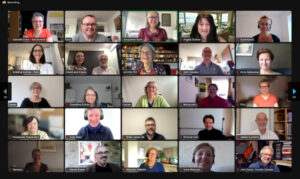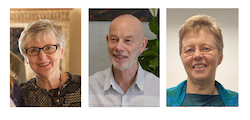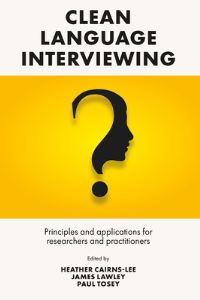Give yourself a New Year’s gift.
The idea for the following activity came from an article by Wray Herbert in Scientific American Mind. Herbert describes several pieces of research that demonstrate
“the George Bailey effect after the protagonist in the classic film It’s a Wonderful Life who finds renewed appreciation for his life after seeing how past events would have played differently had he not been born.”
These experiments had people consider “near losses”, how they might not now have something they value if life had been a little different.
Strangely, the researchers found that by considering how what we cherish might never have happened we increase our appreciation of it. Researchers said that ‘poignancy’ – the bittersweet mix of happy and sad emotions – reinforces our appreciation of what we have.
The activity
Think of someone or something you’d like to appreciate more or to be more grateful for. It could be a spouse/partner, parent, child, a friend – or even yourself. Or maybe you’d like to feel greater feelings of appreciation and gratitude for your health, a relationship, your home, or your job.
Whatever it is, use the person or situation as a context for the following ‘thought experiment’.
Using a spouse/partner as an example, take some time to consider how amazing it is that you ever met. How many events, places and people had to be just right for you two to become involved? Imagine how easy it would have been for you two to have never met. Imagine how if just a few things had been different you wouldn’t be in the relationship you’re in today. How might your life be different?
You can do this on your own and it can be a fun activity to do with your partner. That way you can share in the poignancy and celebrate the gift that is your relationship.
As another example, consider your life. Imagine the thousands of events that had to take place for you to be born. Consider how if just one or two of these had been different you wouldn’t be here today. What if your parents had never met? Were there times when if it wasn’t for someone or some circumstances you might not have survived? What if those ‘close shaves’ had turned out differently?
If your parents are alive you could even ask them to describe just how many ‘coincidences’ had to occur for them to meet, for you to be born, and for you to survive childhood.
Now you’ve got the idea, you can apply the same kind of thinking to whatever you would like to appreciate more.
Remember, the aim of this activity is to invoke and strengthen feelings of appreciation and gratitude. The thought experiment is the access, the doorway, the means to the ends. Once you start feeling the feelings stay with whatever has evoked them, notice where you feel them. Bathe in the sensations and let your emotions do their job – to move you.
Notes
These thought experiments do not require you to consider or answer “why things turned out the way they did”. Just to note that they did – and how miraculous that is. Whether you believe the ‘miracle’ was due to The Almighty, a guardian angel, destiny, fate, individual choice or random chance is not relevant to the activity.
Take responsibility for your own well-being. I believe most people will gain from this activity. However, if you find it is not working for you, then stop doing it and think of something else.
References
“The Midnight Ride Effect” Wray Herbert. Scientific American Mind, 1 Jan 2011, pp 66-67.








